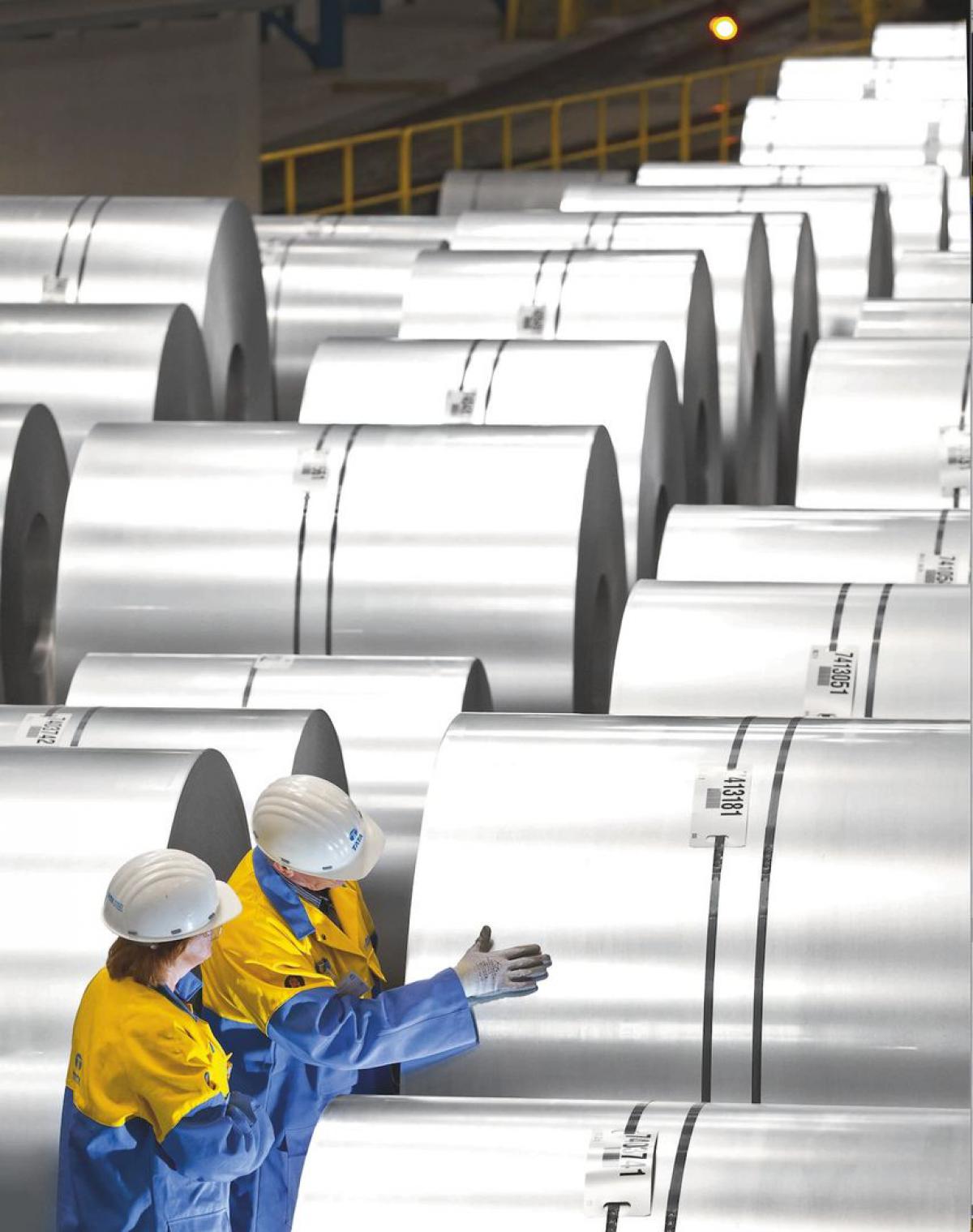In the media: Expensive ruins and a steel exodus
Die Welt
“Steel before a great exodus”
The EU’s plans for a reform of the emissions trading system might lead to a mass exodus of steel companies from Europe, reports Carsten Dierig in Die Welt. “If the commission proposal becomes reality, it will be an extreme existential threat for us,” Jörg Fuhrmann, CEO of German steel company Salzgitter, told the paper. The reform would cost the company more than 100 million euros. The head of Tata Steel's European operations, Karl-Ulrich Köhler, told the paper the commission proposal “put the Europe as a location for steel production at risk”.
Read the story in German here.
Handelsblatt
“Wanted: Copycats”
The announcement of 13 US companies to spend a total of 140 billion dollars on climate protection this week stirs hopes the issue is taken more seriously by German companies, writes Silke Kersting in Handelsblatt. Moritz Nill from Systain Consulting told the paper many international companies have not fully realised the many effects climate change will have on their entire production chain around the globe.
Kersting writes in a commentary in the same paper that climate change is not yet permamently established as a key topic in many companies. She says many family-owned companies in particular feel out of their depth. According to consultants, many businesses require more clearly defined political guidelines to adapt, writes Kersting.
Süddeutsche Zeitung
“Expensive ruins”
Four years after the catastrophe at Fukushima nuclear plant in Japan, it becomes clear all over Germany how big and expensive a project the nuclear phase-out will be, writes Markus Balser in the Süddeutsche Zeitung. A new study commissioned by the Green parliamentary group shows that nuclear plant operators E.ON and RWE would struggle to pay for the upcoming costs of nuclear decommissioning and waste storage, Balser says. Authors Wolfgang Irrek and Michael Vorfeld from Hochschule Ruhr West also point out that five years after the split of E.ON into E.ON and Uniper, E.ON could no longer be held responsible for financing the nuclear phase-out. Both RWE and E.ON say in the article they have made enough provisions available.
Energytransition.de
“Renewables briefly covered 78 percent of German electricity”
A combination of stormy weather in the North and sunshine in the South of Germany on July 25 resulted in over 70 percent of power consumption being covered by renewables, writes Craig Morris on energytransition.de. While hard coal and lignite power production decreased in response to high renewable generation, nuclear power production stayed stable throughout. France’s nuclear power plants are equally slow to respond, as demonstrated by the fact that France exported cheap nuclear power to Germany on the morning of 25 July, says Morris. “This situation once again disproves the common notion that Germany can “rely” on French nuclear when it needs power. In reality, trading takes place based on price, not dire need to prevent blackouts.”
Read the blog-post in English here.
Renewables International
“New German coal plant worth one euro”
In a post on Renewables International, Craig Morris sums up the issue of a new coal plant boiler in Hamm, build by utility RWE, which faces technical problems resulting in investments by several municipal utilities turning bad.
Read the article in English here.


